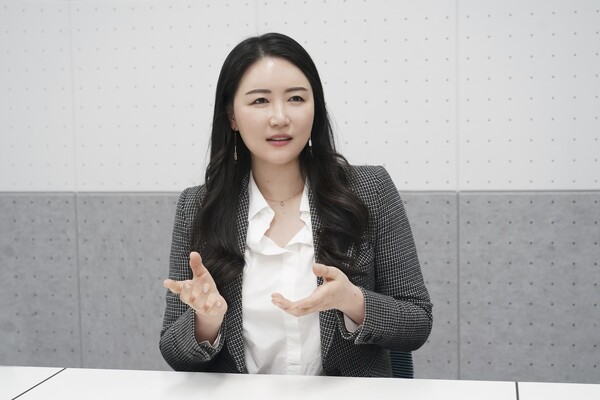In the ever-evolving landscape of pharmaceutical logistics, Marken aims to become a trailblazer, offering logistic services tailored exclusively to the biopharma industry.
To get more in-depth knowledge about the sector, Korea Biomedical Review recently met with Mary Ahn, Country Manager of Marken Korea, to hear her insights into the company's dedication to flawless pharmaceutical logistics.

Marken's specialty in cell and gene therapy transport
The Korean country manager emphasized that Marken's involvement in pharmaceutical logistics extends far beyond mere transportation.
"From the early stages of drug development, Marken collaborates with clients to plan logistics solutions for their specific needs," she said. "The company's role includes assessing the suitable materials for drug transportation, formulating transportation plans, and addressing all logistics-related aspects."
This hands-on approach extends to clinical trials and post-market services, assisting with adverse event management and after-market support, she added.
Notably, Ahn stressed Marken's cell and gene therapy (CGT) transport specialty.
"CGTs are at the forefront of medical innovation, with personalized treatments becoming increasingly prevalent," she said. "However, unlike traditional pharmaceuticals, which are mass-produced, CGTs require special attention due to their personalized nature."
Ahn stressed that each treatment is unique to a patient, making transportation accuracy and reliability critical to ensure optimal patient outcomes.
"Transporting CGTs involves meticulously scheduling cell culturing and adhering to stringent temperature requirements throughout the journey," she said. "Temperature control is of paramount importance in CGT transport, and while outbound shipments are typically maintained at 2-8 degrees Celsius in refrigerated boxes, inbound CGTs must be cryogenically frozen at temperatures below minus 150 degrees Celsius using liquid nitrogen to ensure the cells remains viable and undamaged during transit."
To meet these challenging requirements, Ahn stressed that Marken carefully plans its operations and coordinates with transportation providers to pick up and deliver the CGTs at precise times.
"Even for international shipments, where customs and pickup times may be fixed, Marken employs the 'next flight out' approach, utilizing private aircraft or hand-carrying to synchronize with the most immediate available flight and meet the scheduled deadlines," she said. "Marken ensures real-time tracking of transport tanks using GPS technology, allowing clients to monitor their product's location and route during transit."
This commitment to transparency and oversight extends to Marken's global network, where local managers and teams work around the clock, including weekends, to ensure smooth operations and seamless coordination, she added.
Ahn also added that when using private aircraft for transportation, additional customs documentation and compliance with safety regulations is essential.
"Marken takes charge of all necessary paperwork, ensuring that the CGTs are labeled correctly as dangerous goods and that the packaging meets all relevant regulations," she said. "This attention to detail guarantees the safe and timely boarding of CGTs onto flights, preventing any delays or complications that might arise from oversight."
Global reach and the APAC GMP depot
The company recently established a good manufacturing practice (GMP) compliant depot in Incheon, Korea.
"The Incheon hub has emerged as a pivotal location for Marken, the leading clinical supply chain solutions provider," she said. "This depot, launched in June last year and certified in December, has swiftly become a strategic asset for the company, serving a crucial role in global clinical trials and commercial distribution."
Ahn stressed that while Marken traditionally focused on clinical material storage and distribution in specific regions, the Incheon depot set a new standard as the company's first hybrid facility, capable of handling both clinical and commercial products.
"This innovative approach enables Marken to accommodate a wider range of pharmaceuticals, from standard clinical trial supplies to specialized products like Cellular and Gene Therapies (CGTs) and vaccines that require ultra-low temperature storage," she said. "Since its launch and certification, the Incheon depot has garnered significant attention from clients worldwide. Many pharmaceutical companies are currently engaging in discussions and negotiations, demonstrating the growing importance of this facility in Marken's global network."
As the Incheon depot marked a milestone as the first hybrid depot in the Marken network, it has set the foundation for other countries like Japan and beyond to follow suit with similar hybrid facilities.
Adapting to changing circumstances
The interview also delved into how Marken swiftly adapted to challenging circumstances. During the Covid-19 pandemic, the importance of cold chain supply and other transportation methods was thrust into the spotlight.
"When the Covid-19 pandemic struck and winter arrived, the potential dangers of contracting both the flu and COVID-19 became a significant concern," Ahn said. "The urgency to distribute vaccines promptly led to the spotlight on cold chain management."
However, Ahn stressed that it did not affect how Marken operates as the company had long been well-prepared for such challenges, continuously controlling and managing the cold chain effectively.
"In contrast, selecting suitable packaging was a more important factor as ensuring the right size and type of packaging for each shipment to minimize waste and maintain temperature integrity became important."
Ahn also explained that during the height of the pandemic, air travel faced significant disruptions, affecting the transportation of pharmaceuticals.
"In response, the company sought alternative solutions, leading them to explore ocean freight as a viable option," she said. "However, this presented new challenges due to limited preparation for pharmaceutical shipments via sea."
Still, Marken found that ocean freight offered significant cost advantages compared to air transport, spurring them to enhance their sea transportation capabilities, she added.
The Korean country manager stressed that through collaborating with a top shipping company, they conducted year-long tests to perfect reefer containers, specialized containers capable of maintaining precise temperatures, for pharmaceutical transport.

